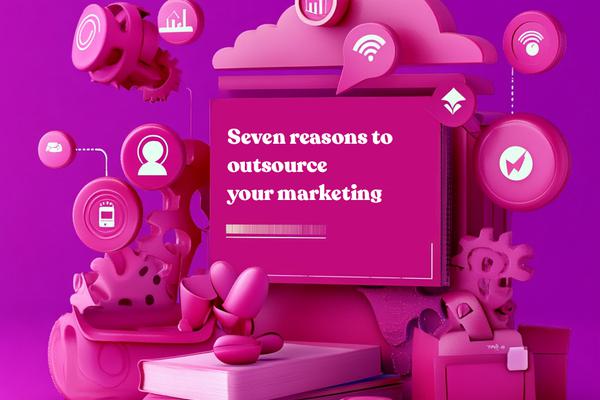The psychology of selling
Written by Claire Scaramanga
This article provides insights into key techniques used to convince us to spend our money.
This article has been assigned the following categories: Tips,

If you have ever tried to tell a child to behave themselves during a tantrum, you will know just how difficult it is to convince another person to do what you want them to do. This also applies to adults, animals and governments.
The truth is that it’s not easy to convince someone to bend to your will, but it is not impossible. We humans are susceptible beings and are surprisingly happy to be persuaded by others as, ultimately, we want betterment for ourselves. We seek comfort over hardship, pleasure over pain. Using a little knowledge garnered from the field of psychology, advertisers and marketers leverage these essential human desires to convince us into buying the thing we didn’t really need, but felt a strong compulsion to own.
We can’t blame advertisers and marketers for everything. Humans have traded goods for millennia and the objective has always been the same: to sell goods in order to obtain a profitable return. However, it was the industrial revolution that sparked the rise of modern marketing. Mass production was born to serve the needs of a growing consumer market and that consumer market needed to be convinced to buy these goods en masse. This became an imperative when competitive brands entered the market place, so finding a product’s Unique Selling Points and communicated these was key to its success.
There are many articles on the psychology of selling, so the aims of this article are to focus more on identifying key human emotions as the basis for forming a new approach when selling your products or services.
Why do people buy anything?
We have touched upon this in our introduction, but it is worth asking the question again. People buy products or services to satisfy one of two main needs:
- The need to gain pleasure.
- The need to avoid pain or a loss.
In other words, we buy things to gain an emotional high. It is our emotions that influence our decision making. People buy products or services based on emotional needs or wants, and then justify their purchase logically afterwards. This means that you are onto a winning formula if you can connect with people on an emotional level and persuade them that it is fine for them to want what they desire.
Emotional triggers
There are many reasons why people buy products or services, some as simple as: convenience (finding the nearest petrol station), basic need (food and shelter, think Maslow's hierarchy of needs), replacement (clothes that don’t fit), brand familiarity and something is now at a lower price. However, we are interested in those influences that are associated to an emotional trigger. These include:
- Joy
- Belonging
- Ethics
- Ego
- Guilt
- Fear and FOMO
- Happiness
Let’s take a deeper look…
Joy
Everyone likes a bargain and find it almost irresistible to pass up a good deal. It is why seasonal sales are so effective. If the perceived value substantially exceeds the price of a product or service then this is like nectar to bees. The compulsion to ‘save money’ and the subsequent joy (rush of endorphins) often outstrips the need.
Supermarkets utilise this to full effect, tempting us with end-of-aisle deals. Virtual businesses trading online offer deals like ‘get the first month free’ or ‘get this exclusive gift with every purchase’. What will you offer to spread the joy?
Belonging
The behaviour of the people around us impacts our own behaviour as we strive to fit in. Though the influence of peers on our behaviour peaks at age fourteen, people around us continue to have an impact on our behaviour our entire lives.
From a psychological point of view, this is called social validation. Social validation is about conforming to the conventions of the current environment that you are in, in order to be a part of an inclusive group. By following the actions defined by the group, we attempt to gain their trust and become part of that group.
Whether we realise it or not, we often adapt our behaviour to satisfy our deep rooted need to feel like we belong.
Everything from member only deals to celebrity endorsement are forms of social validation. Even the phenomenon that is Social Media has become a fertile ground for advertisers. Vloggers, now aptly renamed social media influencers, are persuading us to buy goods in new sophisticated ways. Not only do we want to be like them, we trust everything they say (as they are more real and accessible) and if they say they love X we want X to be just like them. This is just the modern version of mimicry in full effect.
Our desire to belong alters our behaviour. In fact, advertisers rely on it…
If you want to be part of the cool club then you need this phone with these features; if you drive this car you to will have the perfect family; if you wear this aftershave you’ll attract beautiful women. I think you get the picture.
Ethics
It is a misnomer that people don’t like to buy. They love it. What they don’t love is to be conned. If you sell great products and treat people fairly then then this can be a formula for success.
Toms shoes was established in 2006 and, from the offset, they implement their One for One® scheme, where for every shoe sold another was given to charity. That’s 95+ million shoes given away, but the equal amount purchased. That’s a lot of shoes.
Goods that possess a strong ethical underpinning, allow people to buy them whilst feeling better about themselves because they are giving to others. This approach makes it possible to placate a level of guilt because it will help another person or make the world a better place. 95+ million shoes proves this point.
For example, data centres consume a lot of power, however, our preferred host has its own green powered data centre. Their green credentials was one of the factors that convinced us to use their services.
Ego
On the opposite end of the ethics scale, people do buy things just to satisfy their ego. Purchases made for an esteem-related reason or for personal enrichment not only make that individual feel good about themselves, but they also act as a vehicle to advertise their success.
These purchases are easily justifiable with the classic phrase, ’I work hard so I deserve a treat’, which makes the higher ticket price not always a big problem. The luxury goods market is very willing to stroke people’s egos – convincing them with sophisticated advertising and brand awareness campaigns. If they didn’t, then consider, for example, how many fewer performance cars would be sold.
To appeal to a person’s ego you need to answer the unspoken question, “What’s in it for me?” The beauty industry knows this all too well. In 1971, L’Oreal starting using the slogan ‘because I'm worth it’, which has evolved to ‘because we're worth it’. That slogan has lasted nearly 50 years but still resonates today.
Of course, some people buy products simply to meet a standard of social status, often exceeding what’s realistically affordable for them. They yearn for acceptance and believe they can achieve this by obtaining the right watch, car, suit etc. Unless society changes, then this will always be a truism.
Although images of models and celebrities ‘living the dream’ are aspirational to most people in this category, they need to be convinced that they can share in this dream. Ask any Japanese tourist visiting London that leave with a gift from Harrods or a suit from Saville Row.
Guilt
Guilt is a powerful emotion which can persuade a person to commit to making a purchase that they ordinarily would not make. The overarching need to reciprocate can occur after receiving a gift from a friend for no discernible reason, or perhaps out of obligation. Would you turn up without a wedding gift?
Don’t worry. If not a wedding then there are many other opportunities in the calendar that allow for the purchase of guilt gifts: forgotten birthdays, christenings, Christmas, Father/Mother’s Day, Valentine’s Day to name a few. In case that is not enough there are these unforgettable occasions, such as: National Parents’ week, National Organic month and not forgetting Roald Dahl day.
From a seller’s perspective, you will probably need to do more than invent a day of celebration for your product to turn it into the perfect gift. More practical advice would be to tailor your copy to appeal to the current well known celebration. For example, ‘Don’t forget to buy Mum a X or that means no more Sunday roasts for you’. Alternatively, try alleviating the guilt. For example, ‘Forgotten to get a Christmas gift for an important loved one? Don’t panic. We can deliver your X wrapped by tomorrow. No one needs to know you left it until the last minute’.
Fear
From stockpiling food and bomb shelters to online services that offer malware protection or credit scores, there are certain things that are just bought out of fear. Self preservation is a natural instinct, so if your product or service can provide protection then this can almost be justified as an essential purchase. The beauty industry uses fear (mainly the need to mitigate old age) at every opportunity and food manufacturers strive to label their products to possess healthy qualities (so you can ward off diseases). Using fear to sell products is more prevalent than you think.
FOMO
There is another psychological phenomena connected to fear and that is the Fear Of Missing Out (FOMO). FOMO is a powerful tool and it is often used to influence behaviour. In decision theory, the psychology behind FOMO can be partially explained by loss aversion. People have a strong tendency to want to avoid any losses which seem to have twice the psychological impact compared to the benefits of making gain. Essentially, we just hate to lose out on anything so we avoid the risk.
From a selling perspective, offering time limited deals is a really strong motivator. Many travel sites employ FOMO when displaying a message stating 3 other people are also looking at the same hotel. When booking concert tickets online, it is not unusual to trigger a countdown timer to encourage the user to complete the purchase. Hurry up! When they are gone, they’re gone.
Another psychological principle behind FOMO is the paradox of choice. The more choices we have, the less happy we are with what we choose. Too many choices can lead to feelings of anxiety, even depression. That’s why businesses that sell subscription plans use a typical design pattern to show between 3 to 4 options, with the preferred plan highlighted in some way. Too many options and there is a danger that none are chosen.
Happiness
Who doesn’t deserve a bit of luxury now and then? There’s no better justification for that weekend away, a meal in a Michelin Star restaurant, or that expensive bottle of 15-year-old single malt whiskey, other than it will make you feel happy.
Indulgence is not a bad thing every once in a while. And if you need any justification then just remember L’Oreal’s slogan ‘Because I’m worth it’.
We are all salesmen
Let’s wrap this article up. We may not see ourselves as the archetypal car salesmen, but we are all selling something on some level. Whether that is a B2B service, consumer goods or a dream holiday. So when you next need to connect with your audience, try using some of these tips and consider the psychology behind human behaviour. With any luck it will lead to better sales and conversion rates.


